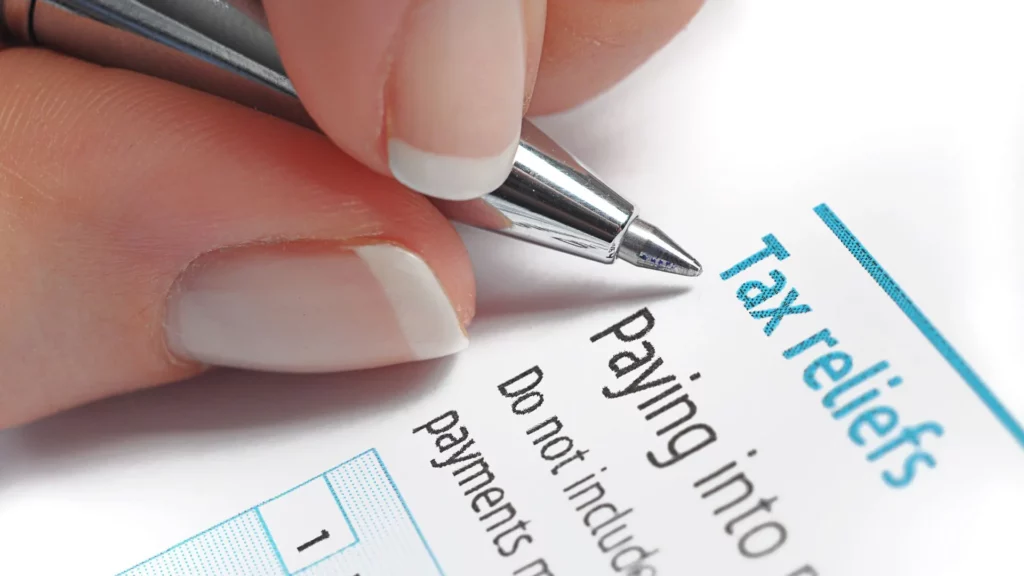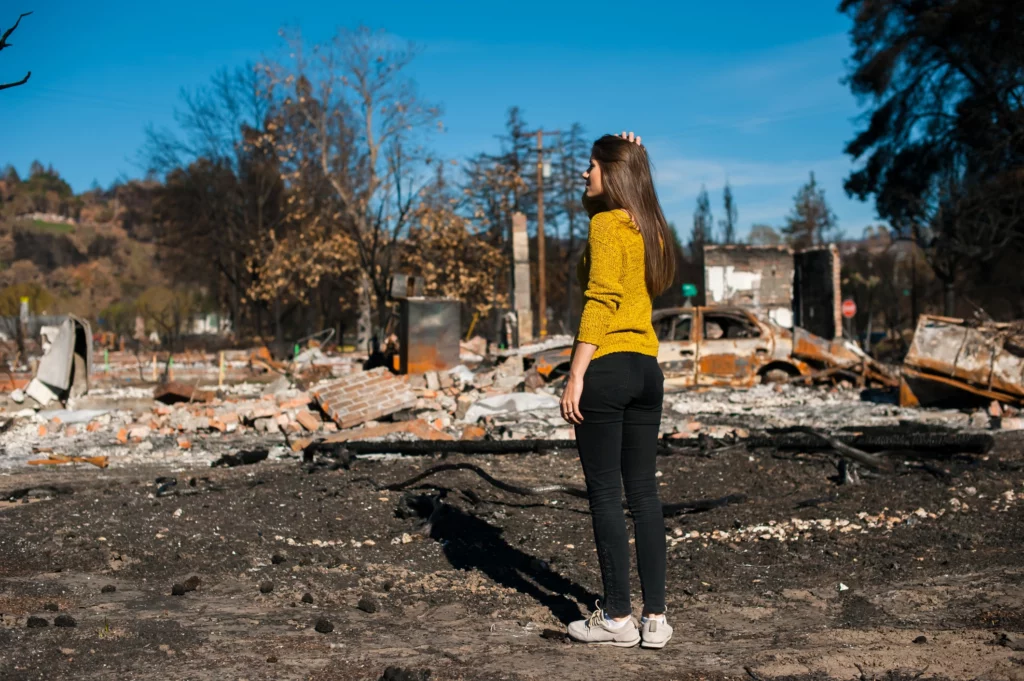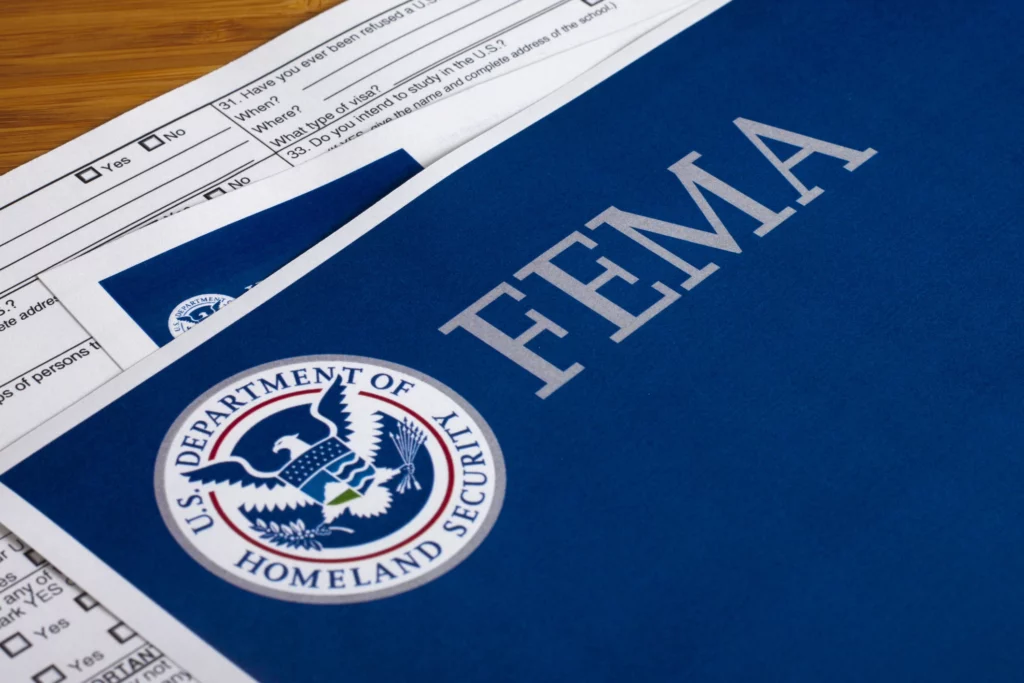The recent Eaton Fire in Altadena and the Palisades Fire in Los Angeles have deeply impacted local communities, destroying homes, displacing families, and causing significant financial challenges. At West Coast Trial Lawyers, we understand how devastating such events can be, especially when you’re faced with the tasks of rebuilding your home, replacing lost belongings, and recovering from emotional pain. Fortunately, there are tax relief options in place specifically designed to assist those who experience property and economic damage after a wildfire in California.
Below, we provide an in-depth guide on how to maximize available tax relief programs, claim casualty losses, and leverage additional IRS benefits, all while focusing on your rights as a wildfire victim.
Tax Relief Eligibility After a Wildfire

First, check whether the wildfire meets the requirements for a federal or state disaster declaration. If it does, you may gain access to various tax relief options from the IRS and possibly the California Franchise Tax Board (FTB). Common forms of relief include:
- Filing Extensions: Both the IRS and California FTB may announce extended deadlines for filing returns and making payments.
- Casualty Loss Deductions: Taxpayers can claim significant property losses, which can help reduce their taxable income.
- Penalty and Interest Relief: When taxpayers cannot file or pay on time due to a disaster, penalties and interest may be waived or reduced.
Verifying Federal Disaster Declarations
Check that your wildfire is officially listed in a federal disaster declaration before using certain tax relief options. If the wildfire is severe enough for federal aid, government agencies will list the affected counties. These declarations allow you to claim important tax benefits, like casualty losses on either this year’s or last year’s tax return. We suggest:
- Checking the FEMA website to see if your county is listed as part of a federally declared disaster area.
- Reviewing IRS announcements or press releases, which outline the specific regions eligible for tax relief and the corresponding deadline extensions.
Claiming Casualty Loss Deductions
A significant benefit of tax relief after a wildfire is the ability to claim casualty loss deductions on your federal tax return. A casualty loss is damage or destruction of property from a sudden, unexpected event—such as a wildfire. To claim these deductions:
- Calculate Losses: Compare your property’s fair market value immediately before and after the wildfire.
- Subtract Reimbursements: Deduct any insurance or FEMA reimbursements from the total calculated loss.
- Maintain Proper Records: Retain appraisals, estimates, and receipts to back up your figures.
- Include Form 4684: File Form 4684 (Casualties and Thefts) with your tax return, detailing the extent of your wildfire damage.
You may also amend a prior year’s tax return to claim casualty losses, potentially resulting in a quicker tax refund. This can be particularly helpful if you need immediate funds to jumpstart your recovery efforts.
Documenting Wildfire Losses Thoroughly
To claim casualty losses, detailed documentation is key. Proper record-keeping simplifies filing accurate claims with both the IRS and insurance companies. We suggest gathering:
- Photographic or Video Evidence: Capture all structural damage and destroyed personal belongings.
- Insurance Reports: Obtain copies of claims submitted to your home insurance provider.
- Repair Estimates and Receipts: Keep receipts for lodging, home repairs, debris removal, and any other wildfire-related expenses.
- Property Valuations: Secure recent property tax assessments or appraisals to substantiate the value of your home or assets before the wildfire.
These records help justify your casualty loss deductions and also support insurance claims and FEMA assistance applications.
Filing Extensions and Expanded Deadlines
One of the quickest tax relief options after a wildfire is an extended filing deadline. If the area is a federally declared disaster zone, the IRS usually sets new deadlines for individuals and businesses, giving them more time to gather documents and account for losses. In California, the Franchise Tax Board typically does the same. To make the most of these extensions:
- Identify Revised Deadlines: Check the IRS website for specific extended deadlines, which can range from weeks to months.
- Notify Tax Professionals: Inform your accountant or tax preparer that your address falls within a declared disaster zone, so they apply the correct deadlines.
- Avoid Penalties: Utilize these extensions to gather all your documentation and file or pay without incurring late penalties.
Choosing Between the Current or Prior Tax Year
When the wildfire is part of a federal disaster declaration, you have the option to claim casualty losses on either the current year’s tax return, or the prior year’s tax return by filing an amended return (Form 1040X). Your choice depends on which option offers the biggest tax break. Filing an amended return for last year might get you a refund sooner, while waiting until the current year could provide a larger deduction if you expect higher income or need more time to assess damage. We suggest talking to a tax professional to find the best path for you.
Extended Payment Plans and Penalty Relief
Even with extended deadlines, meeting tax obligations after a wildfire can be difficult due to mounting expenses for repairs or temporary housing. In these cases, the IRS may offer:
- Payment Plans: Spread out your tax payments over several months or years.
- Penalty Waivers: Demonstrate reasonable cause—like financial hardship due to wildfire damage—and the IRS may waive certain penalties.
- Interest Abatement: In rare circumstances, the IRS may remove or reduce interest if you can show the wildfire prevented timely payment.
We encourage filing your returns on time (even if you can only pay partially) and then applying for a payment plan or penalty waiver, as this often reduces the risk of additional penalties.
Exploring California State Tax Relief
The California Franchise Tax Board (FTB) generally mirrors federal tax relief measures but sometimes implements its own rules. To ensure you receive all available relief:
- Review FTB Announcements: Check the FTB website for updates on extended deadlines or special wildfire-related provisions.
- Check State-Specific Deductions: California may offer programs or credits specifically targeting disaster areas.
- Reach Out to Local Authorities: Your county may have property tax reassessment programs for wildfire victims, reducing the assessed value of damaged structures.
Maximizing FEMA Assistance Alongside Tax Benefits
If your wildfire is part of a federally declared disaster, FEMA offers programs that provide vital funds for rebuilding and other immediate needs. When combined with IRS benefits, these resources can significantly reduce your overall costs:
- Immediate Needs: FEMA grants can cover temporary housing, urgent repairs, and essential services.
- Loan Programs: Low-interest SBA (Small Business Administration) disaster loans may be available to homeowners, renters, and businesses.
- Coordination with Tax Deductions: FEMA grants generally don’t affect casualty loss deductions; however, any funds you receive for damage repair must be subtracted from your total claim.
Addressing Insurance Settlements
Insurance settlements also affect the amount of casualty loss you can claim for tax purposes. If your final settlement exceeds your property’s adjusted basis, you may need to address potential capital gains issues. Usually, though, settlements fall below your property’s pre-disaster value, confirming the casualty loss. We recommend:
- Accurate Tracking of Insurance Payments: Maintain a clear record of all compensation received.
- Seeking Professional Advice: Complex payouts can alter your tax strategy, so a consultation with a tax expert may be invaluable.
- Noting Settlement Timeline: The timing of your proceeds can influence how and when you claim losses.
Preparing a Detailed Record for Future Audits
Claiming substantial casualty losses may prompt inquiries from the IRS or FTB. A well-organized record will simplify the audit process. Keep:
- Receipts and Invoices: For all fire-related repairs or replacements.
- Correspondence: Letters from the IRS, FTB, or FEMA regarding the disaster declaration and extended deadlines.
- Insurance Documents: Proof of claims, settlements, and coverage details.
- Appraisals and Valuations: Before-and-after assessments of your property’s fair market value.
Excellent documentation increases the credibility of your casualty loss deductions and streamlines any follow-up with tax authorities.
Final Thoughts and How West Coast Trial Lawyers Can Help
Recovering from a wildfire in California isn’t just about cleaning up and rebuilding—it’s about safeguarding your financial well-being for the future. By leveraging IRS programs, California FTB rules, and FEMA assistance, you can minimize the economic burden as you move forward.
At West Coast Trial Lawyers, we’re here to guide you through every step of the process—especially if you suspect the wildfire that damaged your property was caused by negligence, such as power company mismanagement.
If you or someone you know was affected by the Eaton Fire in Altadena, the Palisades Fire, or another wildfire in Los Angeles and need help exploring legal remedies or maximizing your tax relief options, contact us at (213) 927-3700 or fill out our online contact form to schedule a free consultation.












































































